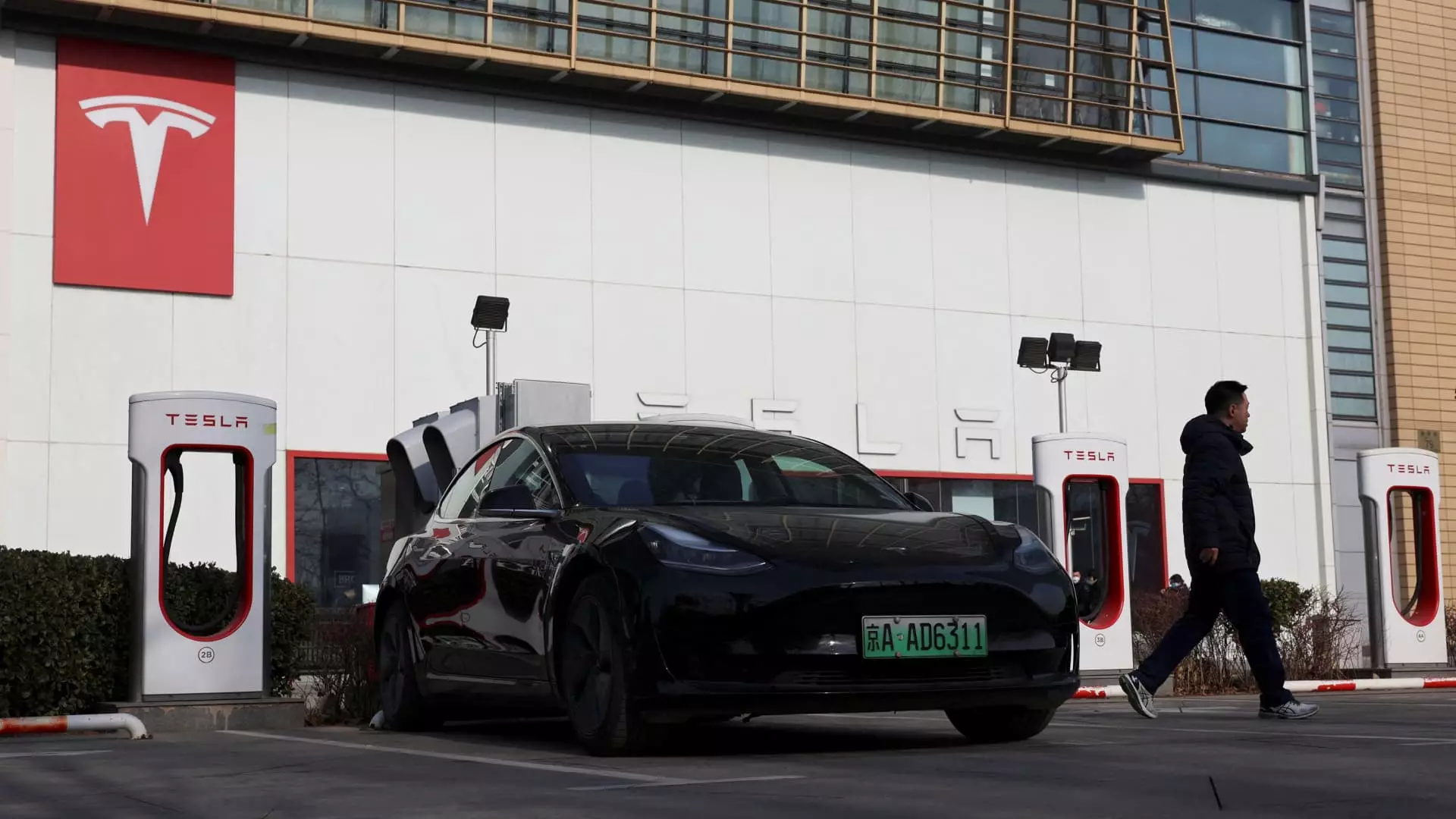In recent years, the dynamics of China’s automotive market have undergone a seismic shift, mostly driven by the rise of new energy vehicles (NEVs). As the country moves closer to 2025, predictions indicate that established foreign players will struggle to keep pace while local companies solidify their leadership. The automotive sector, once dominated by traditional foreign manufacturers, is witnessing a renaissance of homegrown brands, particularly electric vehicle manufacturers like BYD, Geely, and several startups.
The Ascendancy of BYD
BYD has become a benchmark of success in the electric vehicle segment within China. According to Nomura’s analysis published in December, the company has already captured a significant share of the automotive market—16%, up from 12% just a year earlier. This growth trajectory signifies BYD’s capability to further solidify its market position as the demand for NEVs surges. Furthermore, the company’s performance in the third quarter showcased its burgeoning revenue, even surpassing Tesla for the first time on a quarterly basis.
Despite Tesla’s reputation, it operates in a higher price range compared to BYD, which sells a diverse lineup that includes both battery electric and hybrid vehicles. This fact amplifies BYD’s appeal to a broader segment of consumers. While Tesla’s sales dipped by 4.3% in November, BYD experienced an astonishing surge of 67% for the same month, indicating a decisive shift in consumer preference toward more accessible and varied electric vehicle options.
Competitive Landscape: Geely and Emerging Players
Geely, the second-largest contender in the Chinese automotive market, holds an 8% market share according to Nomura. Recent evaluations suggest that the company’s electric vehicle penetration rate could reach an impressive 40% as it rolls out additional models. Analysts from HSBC have upgraded their financial outlook for Geely, projecting sales to climb to 2.6 million units in the coming year. The company’s diversified brand portfolio, which includes the high-profile acquisition of Volvo, adds another layer of depth to its competitive strategy.
However, despite Geely’s success, the vast majority of the market share remains under the sway of established players like BYD. The situation underscores a challenging landscape for foreign automakers and traditional domestic manufacturers who are lagging in the transition to battery-only and hybrid vehicles. Companies like General Motors, which announced substantial restructuring costs related to its presence in China, highlight the challenges that Western brands face in adapting to the rapidly evolving market.
The struggles of traditional automakers are emblematic of a broader issue facing the industry. As consumer preferences veer towards electric and hybrid vehicles, brands that have maintained a purely gasoline-fueled lineup are finding it increasingly difficult to attract buyers. General Motors is not alone in facing such scrutiny; many legacy automakers are grappling with how to reposition themselves in a market that is losing patience with laggy transitions to electrification. Joint ventures that were once viewed as golden tickets are now scrutinized under the harsh light of shifting consumer attitudes towards sustainability and technology.
Despite these setbacks, some up-and-coming EV startups are positioning themselves strategically. Companies like Yongda, which operates retail stores for multiple DRIVEN energy automobile brands, have gained traction in the growing EV market. With the prospective sales of Huawei-branded vehicles predicted to exceed one million units in the year ahead, it becomes evident that collaborations between tech firms and automakers could redefine market dynamics even further.
Among the newer entrants, companies such as Nio and Leapmotor are garnering interest from analysts. Notably, Leapmotor exhibits efficient spending on research and development, significantly lower on a per-vehicle basis than competitors like Xpeng and Li Auto. This financial prudence could play a decisive role in how well these companies navigate an increasingly competitive market.
Citi’s projections suggest that Nio is aiming for a breakeven point by 2026 while ramping up its production. The company’s ambitious plans to introduce new models suggest a confidence in the company’s path forward, despite the difficult landscape posed by established giants.
The 2025 outlook for China’s automotive industry suggests a period of significant upheaval, characterized by local companies solidifying their leadership in the electric vehicle segment while traditional players either adapt or risk obsolescence. The emphasis on technological integration, marketing strategies directed toward affordability, and diversified product lineups will likely dictate the future trajectory of the automotive sector in this rapidly evolving market. In the race to lead the electric vehicle revolution, it is becoming increasingly clear that domestic brands hold the upper hand, reshaping the landscape in ways that require a thorough reconsideration from foreign manufacturers.

